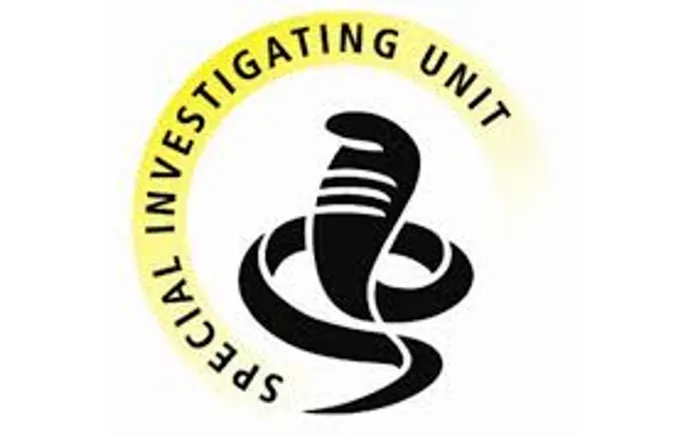Balancing Accountability and Contractual Stability: Lessons from SIU v Baithusi Trading CC

Introduction
The decision in Special Investigating Unit v Baithusi Trading CC (GP09/2020), delivered by the Special Tribunal established under section 2(1) of the Special Investigating Units and Special Tribunals Act 74 of 1996 (“the SIU Act”), offers a valuable reflection on the limits of intervention in ongoing contractual arrangements involving the State. The Tribunal was called upon to determine whether interim relief should be granted to the SIU to preserve the proceeds of lease agreements pending a broader action challenging their constitutional validity.
This matter sits at the intersection of two competing imperatives: the State’s constitutional duty to ensure accountability and curb unlawful expenditure, and the need to uphold the stability of validly concluded contracts where performance continues.
Background and Facts
The SIU launched proceedings against Baithusi Trading CC (“Baithusi”) as first respondent, the Minister of Public Works and Infrastructure as second respondent, and the Commissioner for the South African Revenue Service as third respondent. Acting pursuant to a presidential proclamation, the SIU alleged that certain lease agreements between Baithusi and the Department of Public Works were tainted by irregularities, non-compliance with section 217(1) of the Constitution, and tax non-compliance.
Pending the determination of the main action – which sought a declaration of invalidity and the recovery of approximately R 19.8 million – the SIU applied for an interim interdict restraining further rental payments to Baithusi and directing that such rentals be deposited into a trust account administered by an attorney. The SIU argued that without this preservation mechanism, there was a reasonable apprehension that Baithusi would dissipate the funds, frustrating any eventual recovery.
Baithusi opposed the relief, contending that the lease remained valid and that the State had enjoyed continuous occupation of the property. It argued that withholding payment while occupation persisted would amount to unjust enrichment and that the SIU lacked standing to interfere in an extant, operational contract to which it was not a party.
Legal Framework
The Tribunal considered the statutory authority of the SIU under sections 4(1)(c)(i) and (iii) and 5(5) of the SIU Act, which empower it to institute civil proceedings to recover losses and to seek appropriate relief flowing from its investigations. It also applied constitutional principles under section 217(1) (public procurement standards) and section 172(1)(b) (just-and-equitable remedial powers).
In assessing the interdict application, the Tribunal invoked the classical Setlogelo v Setlogelo 1914 AD 221 test: a prima facie right; a reasonable apprehension of irreparable harm; a balance of convenience favouring the applicant; and the absence of a satisfactory alternative remedy.
Tribunal’s Reasoning
The Tribunal acknowledged that the SIU possesses standing to bring civil proceedings where public funds are implicated. However, it found that the evidence presented did not satisfy the requirements for interim relief.
First, the SIU had not demonstrated any tangible evidence of dissipation of assets or prejudice that could not later be remedied by a monetary order. Mere suspicion, the Tribunal held, could not substitute for proof.
Second, halting payment under a subsisting and operational lease while the Department continued to occupy the premises would unjustly enrich the State. The Tribunal emphasised that decision-makers must be cautious to avoid undermining ongoing contractual performance unless the interests of justice clearly demand otherwise.
Finally, the balance of convenience clearly favoured maintaining the status quo which was the continued occupation by the State and continued payment under the lease, pending the final determination of the main action.
Outcome
The application for an interim interdict was dismissed, with costs awarded against the SIU. The Tribunal’s order reaffirmed that even in cases alleging serious irregularities, interim relief remains an exceptional remedy grounded in evidentiary sufficiency rather than conjecture.
Key takeaways
Evidence-based accountability: Allegations of maladministration, without corroborating proof of risk or dissipation, cannot justify freezing contractual payments.
Contractual continuity and fairness: Public entities must act within the confines of legality and fairness, ensuring that corrective action does not itself create inequity or disrupt legitimate performance.
Institutional restraint in procurement disputes: The Tribunal’s approach signals that statutory forums exercising civil jurisdiction will intervene only when constitutional breaches are established or imminent – not merely alleged.
In practical terms, this case underscores the tension that arises when the State’s investigative arms seek to balance anti-corruption imperatives with operational realities. While the SIU’s mandate is constitutionally significant, its interventions must be grounded in law and evidence, ensuring that accountability measures do not themselves undermine legal certainty or contractual integrity.
Conclusion
SIU v Baithusi Trading CC serves as a cautionary tale for both public bodies and their contractors. For the State, it illustrates the necessity of building a robust evidentiary foundation before approaching the Tribunal for preservation relief. For contractors, it demonstrates that compliance – both tax and procedural – remains indispensable to maintaining legitimacy in dealings with government entities.
Ultimately, the decision advances a jurisprudential equilibrium: accountability in public procurement must proceed hand-in-hand with respect for contractual stability and the rule of law.